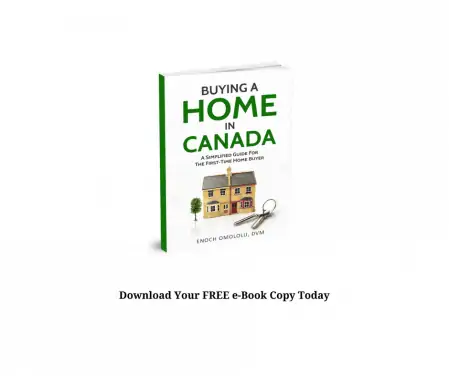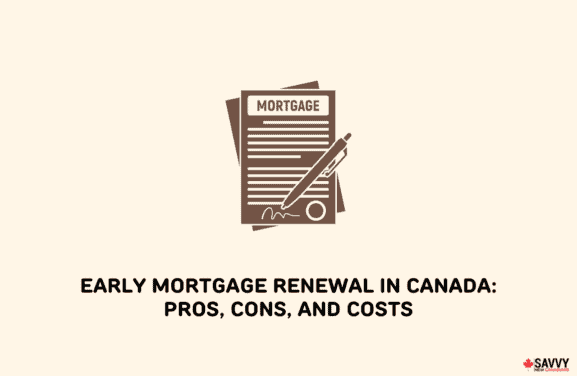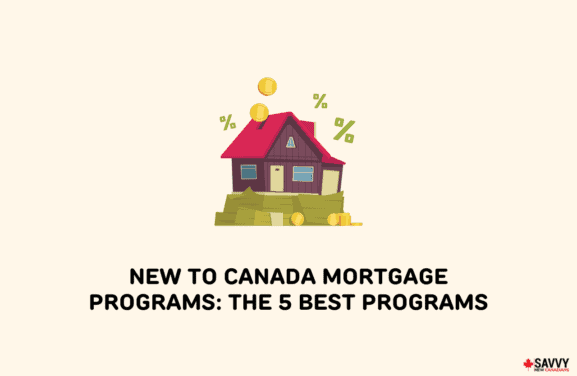If there is one advantage to selling a house privately, it is eliminating realtor commission fees, giving you thousands of dollars in increased profit.
The mountain of paperwork for selling a house without a realtor in Canada, however, may appear intimidating if you have no prior experience.
So, read on further to learn how to sell your house privately in Canada and maximize the profits you make from the sale.
Key Takeaways
- Selling a house privately in Canada, or without a realtor, is known as FSBO, or For Sale by Owner.
- The FSBO method lets you save on realtor costs, which can go up to 6% of the sale price.
- While you can sell your property in Canada without a real estate agent, it is recommended that you use a lawyer to avoid legal problems in the future.
What Does It Mean To Sell Your House Privately?
Formally referred to as for sale by owner (FSBO), selling your house privately means foregoing the use of realtor services to sell your property.
It signifies that a property is being put up for sale by the owner rather than a real estate agent or broker.
Instead of getting the services of an agent, you take on the responsibilities associated with selling your house, including showings, price negotiations, and paperwork.
Some homeowners choose not to hire real estate professionals to sell their homes to avoid commission fees ranging from 3% to 6% of the sale price.
If you sell your home for $500,000, the realtor fees you need to pay would be $30,000. If you sold your home privately, that huge sum of money would go into your pocket.
How to Sell Your House Privately in Canada
As a home seller who chooses to sell your house privately in Canada, you must undertake the tasks that real estate agents do to sell a home. Your responsibilities include:
1. Research
Research the sales histories of homes in your neighbourhood. Learn about the property values for houses with features like yours, including the square footage and number of rooms.
Find out their original listing prices and the number of days they were on the market before they were sold. The price you come up with should be a starting point.
Also, use free automated home valuation tools like HouseSigma to determine the value of your home in real-time. For a more accurate price, consider hiring a professional home appraiser.
2. Prepare Your House For Sale
Preparing your house, or staging it, refers to showcasing the best assets in your home and making an impression on potential buyers.
It involves cleaning, decluttering, and depersonalizing your property to influence potential homebuyers and envision themselves in your home.
The goal of staging your home is to sell it quickly at the highest possible price. According to Realtor.com, a staged home can sell 88% faster than a non-staged one.
3. Choose a Listing Price
A listing price refers to the targeted sale price for your home. It is the one displayed on multiple listing services buyers use to decide whether or not to make an offer on your home.
Research the listing prices of homes sold in your area. Be flexible and willing to negotiate. The best listing price is the highest number that a buyer agrees to pay.
If your property sits on the market for a long time, add some incentives rather than lowering your listing price.
4. List your House
List your property online on sites like HomeFinder and Zillow, online marketplaces, social media, and in the Multiple Listing Service (MLS) through FSBO websites and discount real estate brokerages.
A discount real estate brokerage advertises your FSBO property for a flat fee. When your home is sold, the brokerage will not usually charge any real estate commission.
In addition, create postings on traditional classifieds like Kijiji, Craigslist, eBay, or on social media platforms and other free property listing websites.
5. Market Your House
Apart from listing your house on MLS and other related sites, list it on many other advertising platforms, online directories, and local newspapers.
Take high-quality, professional-looking photos that bring out the best look of every room in your house. Create a captivating description of the property, focusing on its best assets.
Put up a “For Sale” sign in front of your home and make it easy to see to attract potential buyers in your neighbourhood.
6. Hold Open Houses and Viewings
Schedule open house events and showings with prospective buyer’s agents. Post about it in your community’s Facebook groups.
Work on maintaining a flexible schedule during this time to accommodate showings at times suitable for potential buyers.
Since you are your own salesperson, you will be showing your home yourself and answering all queries from buyers or their agents. Be sure to prepare the property beforehand.
7. Negotiate
When you receive an offer or two, they should be submitted in writing to make it easy to review them and check whatever conditions are brought up.
It is also sensible to have the professional guidance of a real estate lawyer who will evaluate the offers, provide legal advice, write out a real estate contract, and specify contingencies.
When negotiating, avoid completely turning down offers of low prices. Instead, send the proposal back to them with a preferable figure with your terms. Be strategic and avoid demanding too much.
8. Closing
Closing occurs once you have agreed with a buyer. This process involves a lot of paperwork, indicating the need for a real estate lawyer.
In this phase, your lawyer will transfer the property title to the buyer and prepare the required documents (the deed, title, mortgage agreement, etc).
You will also need to pay the buyer agent’s commission, which can be a flat fee or usually around 2.5%. When everything is in order, the final step is for your buyer to transfer the payment to you.
Paperwork For Selling a House Without a Realtor in Canada
Since you are selling your home without the services of a real estate agent, you must be familiar with the documents needed to make the transaction successful.
Below is a list of the paperwork for selling a house by owner:
- Original sales contract
- Deeds
- Residential property disclosure form
- Survey plans
- List of chattels
- Transferable warranties
- Professional property appraisal
- Property inspection reports and certificates
- Property tax information
- Property tax receipts
- Home repair and maintenance records
- Renovation contracts
- Copies of electric and gas bills
- Purchase offer and counteroffer forms
- Homeowner association agreements (if applicable)
- Bank information
Not all documents listed are mandatory for FSBO sellers to prepare. Some will come in handy when prospective buyers ask for specific information.
How To Sell a House Privately in Ontario
Knowing how to sell a house privately in Ontario before starting the process is vital to help you accomplish your objective of selling the property.
The province does not require you to be a licensed real estate professional to sell your home in the FSBO manner. It is, however, crucial that you hire a real estate lawyer.
When it comes to selling houses privately, Ontario essentially follows the same home-selling procedure that other places have.
It is worth noting that Ontario legally requires home sellers to disclose these issues to buyers before the sale: asbestos, damaged or leaking roof, mould, and structural damage.
As for private house sale Ontario paperwork, the type of documents you need to prepare, if you are selling your house privately, is similar to the above-mentioned list.
Selling a House Privately in Alberta
If you are selling a house privately in Alberta, the process is the same as in other areas. The province, however, requires that you comply with a few essential things.
When listing your home for sale, you must disclose material latent defects in the property. Not disclosing them would be considered fraudulent misrepresentation.
You may also be required to produce an updated Real Property Report (RPR), a legal document that a land surveyor provides to be able to sell a detached property in Alberta.
Alberta also requires a home seller to have a copy of your land title in order to sell your home. The document specifies the current owner, mortgages, easements, builder’s liens, etc.
Sell Your Home Yourself Websites
There are several sell-your-home-yourself websites that aim to help sellers in finding buyers for their homes. These are usually referred to as for sale by owner (FSBO) websites.
Private sellers in Canada use an FSBO website to list their properties on the Multiple Listing Service (MLS) database since they are unable to post their property on the database.
The MLS is a storage of sale properties to which only licensed real estate agents and brokers can access. You want your property listed on this database because this is where most buyers find their next home.
There are various benefits to investing in an MLS listing. These include maximum exposure for your property, effective marketing to buyer agents, and faster sale.
The following are some FSBO websites that private sellers use to give their listing maximum exposure:
- FSBORealty.ca. This broker-direct MLS brokerage and listing service provides an unlimited MLS posting and sign for a one-time flat fee. It also offers completely paperless services with no hidden fees.
- PropertySold.ca. PropertySold.ca Inc. is an FSBO website that offers free and paid services to sellers seeking increased listing visibility. It also provides private home sellers with the tools and customer support they need.
- FSBO Inc. This FSBO site offers sellers flat fee pricing for services, including listing private sellers’ properties on the MLS system through a network of Canadian real estate brokerages.
Once your property has a listing on the MLS, the information will automatically go to sites like Realtor.ca, Internet Data Exchange (IDX), Point 2 Homes, and Kijiji.
How Much Can It Cost To Sell Your House Privately?
There are several costs involved when selling your home in Canada. These vary by province, region, and the commission cost structure of a real estate agent, that is, if you hire a real estate agent.
If you live in Alberta and want to sell your house privately for $750,000, these would be the costs you can avoid:
- Real estate commission or fees in Alberta (7% for the first $100K of the home’s price and 3% of the remaining balance above $100K) – $26,500
- 5% GST applied to the total commission in Alberta – $1,325
As an FSBO seller, your typical closing costs could include the following:
- Real estate lawyer fees – May generally range between $500-$1,000
- Lawyer and legal fees – Anywhere between $500 and $1,500, including tax, depending on the amount and difficulty of work involved
- Property survey – Between $1,500 and $6,000, depending on location, property, survey type, and geographical and legal complications
- Home inspection fee – Generally around $500
- Property appraisal fee – Often between $300 and $600, depending on location
- Title insurance – Can cost a few hundred dollars, depending on the insurance company
- Government registration fees – The average total for all registration fees can be around $200, depending on the document, property type, province, and region
Before closing, your real estate lawyer will provide a full breakdown of all your selling costs and what you will be responsible for as a seller until the closing date.
Pros and Cons of Selling Your House Privately
Pros:
- Saves you thousands on real estate agent commissions, fees, and closing costs
- An ideal method if you already have a buyer
- Gives you more control over the price, the sales process, and how long it can take
- You decide on what processes to spend money on
- You pick what marketing method to use to advertise your property
- There are discount brokerages that can help list your home
Cons:
- It requires lots of work and demands time and attention.
- FSBO still requires paying the commission of the buyer’s agent (usually 2% to 3% of the offer price)
- Lack of experience may cause under- or overpricing of your home
- You may be financially liable if the sale does not go as expected
Should You Sell Your House Privately?
Selling your house privately entails a lot of work that would take a lot of your attention and time from your daily routine.
To sell your house privately for the best possible price, you must be able to:
- Value your house
- Hold house events and viewings
- Work with other real estate agents and professionals to carry out the steps in selling your property
- Market your home on different channels
- Communicate with prospective buyers
- Negotiate and handle offers
If you are confident you can take on the tasks of a realtor, then selling your house yourself can save you thousands of money while having complete control over the selling process.
FAQs
It is usually the buyer’s side that requires an attorney to handle tasks like registering the transfer of property during closing. But a seller can also benefit from having a lawyer who reviews the terms and conditions of the purchase and sale contract and ensures that you complete all required transactions by the deadline.
If you sell your house to a family member, you should do so at a price not less than the fair market value of the property to avoid double taxation. The process for a private sale of a home to a family member is the same as with the FSBO method. Using the services of a lawyer is also recommended to avoid future legal problems.
Selling a house in Canada requires paying capital gains tax, which is 50% of realized capital gains. This means you must include 50% of your capital gains as income when you file your tax return.
Some ways to avoid capital gains tax on your property are by using registered accounts to hold your investments, claiming a capital loss from other investments, learning when to sell your investments, and donating your shares to charity.
Related:




The ForSaleByOwner.ca website is Canada’s original FSBO selling platform!
Check it out. You can control your own sale on the MLS system with FSBO Inc.